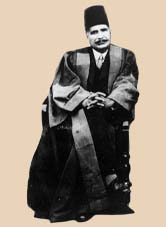Statistics
The literature on Iqbal is extensive: critic Rauf Parekh, basing himself on the works of Prof Dr Haroonur Rasheed Tabassum, talks of at least 300 books [1] while, when it comes to articles, a team from the KULeuven has referenced 2,500 articles, keeping in mind that the bibliography stopped at 1998 and that they only concern items in Latin script (thus not Urdu and other Oriental languages where publications on Iqbal are more numerous.) [2]
In 2023, Dr Rafiuddin Hashmi compiled a descriptive bibliography of works (books, articles, special issues of magazines, etc) on Iqbal’s life and works in the Urdu language, Kitabiyaat-e-Iqbal, ending up with some 6,000 items listed. [3]
